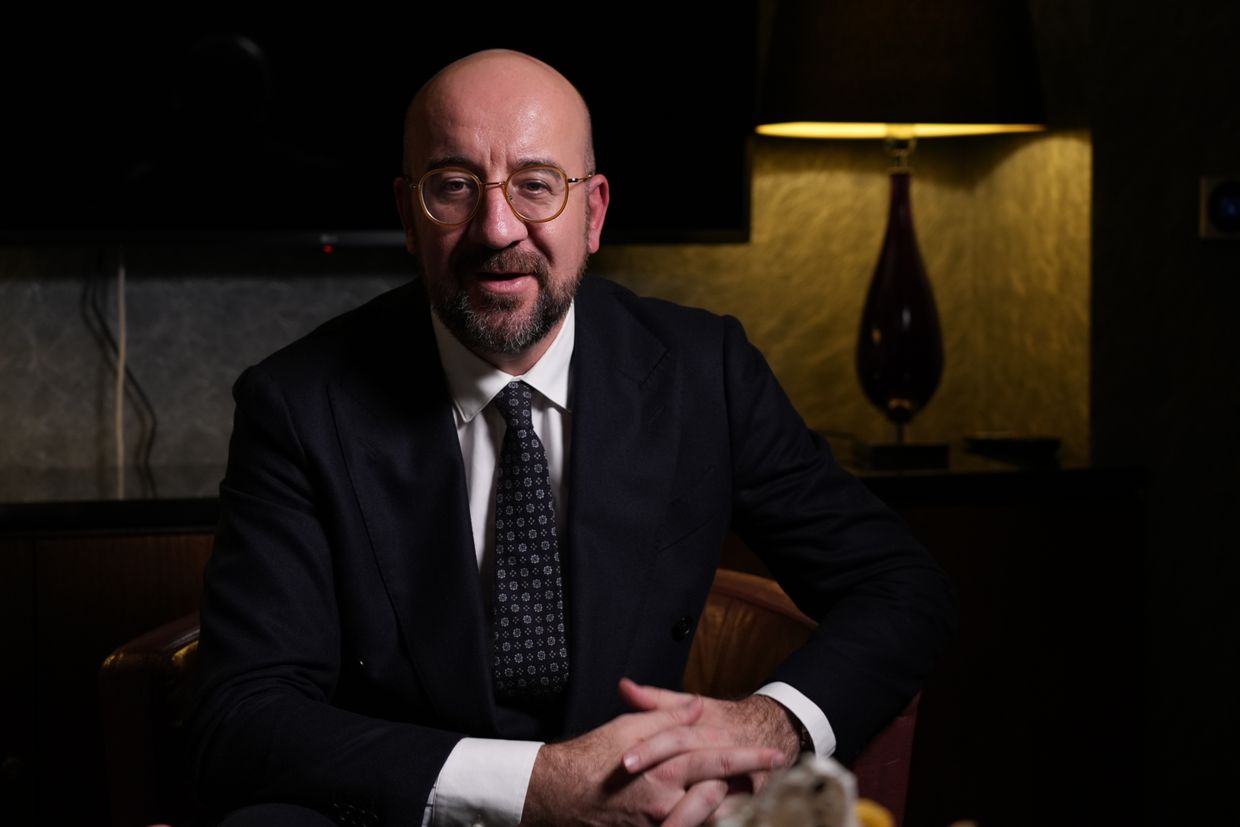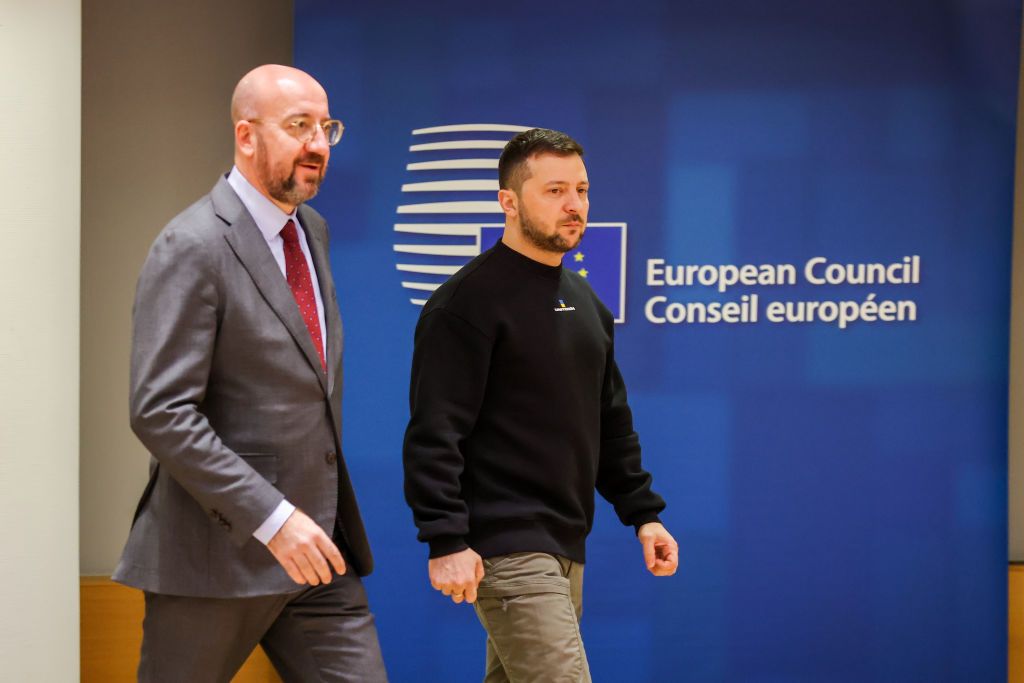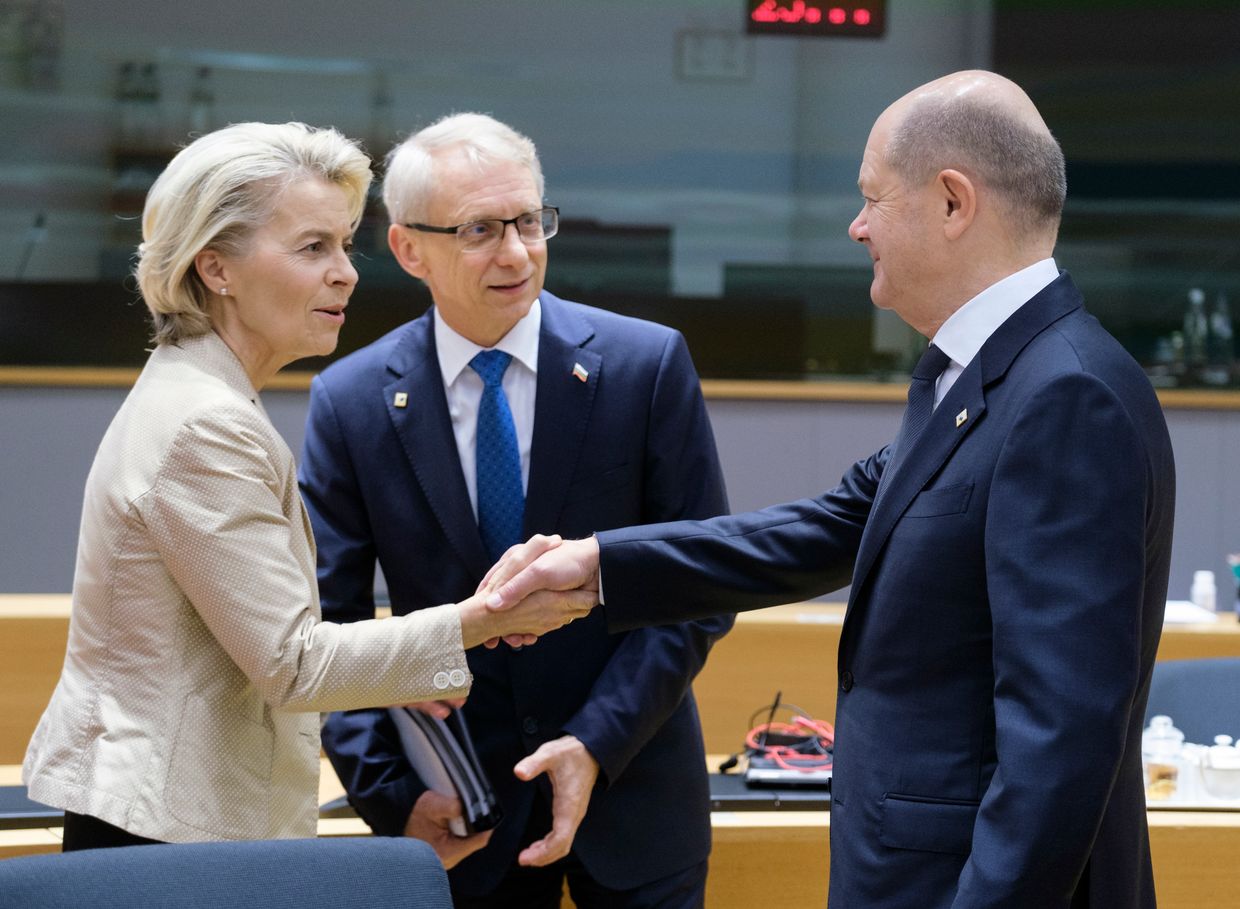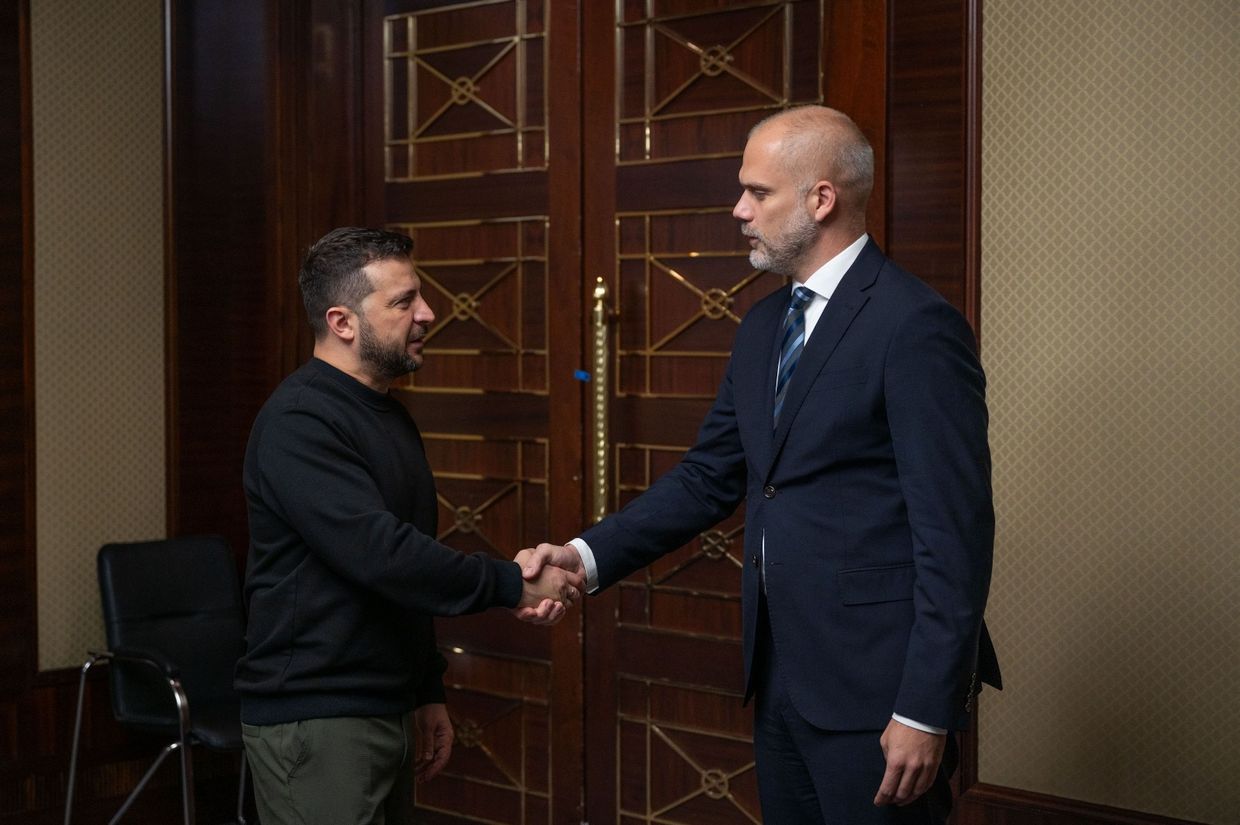‘We have to speed up:’ European Investment Bank head Hoyer calls for swift reconstruction of Ukraine

Werner Hoyer, the head of the European Investment Bank (EIB), and its vice-president Teresa Czerwinska visited Kyiv on Nov. 27 to announce a new 450-million-euro package ($493 million) to Ukraine and inaugurate the bank’s new regional hub in the capital.
The sum, approved by the EIB on Nov. 15, includes 250 million euros ($273 million) to build and repair social housing, district heating, hospitals and schools, roads, and bridges across the country.
Another 200 million euros ($220 million) will be used to restore vital water supply systems in areas affected by the war.
Hoyer and Czerwinska also met with President Volodymyr Zelensky, who thanked them for their decision to open the regional hub in Kyiv.
”It is not only significant for Ukrainian business, but it also conveys an essential message of faith in Ukraine and its development to our people,” Zelensky said.
In a press briefing with reporters ahead of the meeting, Hoyer said the EIB may approve another 200-million-euro package for Ukraine before the end of the year.
“I wouldn't be surprised if we could sign another 200 million euros for projects in public transportation or water,” he said.
It’s urgent to help rebuild Ukraine now, Hoyer said.
“If we wait until the day Ukraine has won and the ink under the peace treaty is drying, then it will be much more expensive,” Hoyer said. “We have to speed up.”
EU support
Since the start of Russia’s full-scale invasion of Ukraine in 2022, the EIB has disbursed 1.7 billion euros to help finance emergency repairs to the country’s ravaged infrastructure, Hoyer said.
The country will need at least $411 billion, according to a World Bank report released in March. That figure may also be a gross underestimate. Hoyer estimated in 2022 that Ukraine may need 1 trillion euros in external assistance to repair damages caused by Russia’s war.
However, he adamantly ruled out supporting Ukraine’s military.
“Financing this war is a priority we cannot help,” he said. “That's simply not the business of a development bank.”
The EIB’s role is to lend for infrastructure. The bank, which has been operating in Ukraine for 16 years, has a portfolio of projects adding up to 7.3 billion euros, focusing on transport, energy, and municipal infrastructure, according to the EIB website.
Support from the EIB aims to prepare Ukraine’s economy for its accession to the EU internal market’s ruthless competition, Hoyer said.
“It's a brutal competition, and this country must be prepared for this,” he said, acknowledging the process would be laborious.
“We see Ukraine as a future member of the European Union,” he said. “It will take place, but it will be long and painful.”
Zelensky held a call with European Commission President Ursula von der Leyen on Nov. 27, ahead of the European Council meeting in December.
The discussion reportedly focused on Ukraine's progress in implementing the recommendations of the European Commission for the start of negotiations on joining the EU.
Ukraine and Moldova received recommendations from the European Commission on Nov. 8 to begin formal negotiations on their accession to the European Union.
"Our country will continue to fulfill all its commitments, in particular those pertaining to national minority rights and strengthening anticorruption institutions," Zelensky said.
Hoyer admitted corruption was “a big problem,” but he says he’s seen serious efforts from authorities.
“They know exactly what will happen if a huge scandal pops up,” he said. “Support for our business will diminish, and this is a risk nobody wants to take.”
Every project financed by the bank has to follow strict procurement rules in line with the EU’s transparency directives.
The EIB has “an army of people” watching, Rafal Rybacki, the head of the public sector lending department for Eastern Europe, told the Kyiv Independent.
“It's costly and difficult, but Ukrainians will have to learn to follow these rules soon,” he said. “They will have to if they become part of the EU.”
Security guarantees
The EIB sells bonds on financial markets, and as soon as the Ukrainian government is able to fix infrastructure and repay it through concessions, bond buyers will be able to get their money back.
This process can take years, but these are decades-long loans, and EU state members back the bonds.
EU state member’s security guarantees work as a backup because financial markets wouldn’t lend without guarantees from EU members to cover potential losses in a war-torn country.
The EIB sells 60-100 billion euros worth of bonds yearly, Hoyer said.
“The entire idea of financial instruments like this is to cash in money from the financial markets,” he said.
Relying on EU shareholders means that the bank must constantly convince EU members to continue backing up the EIB’s investments in the country.
Speaking of support, the U.S. presidential election outcome in 2024 is a source of worry for Hoyer. “If the US begins to be inward-looking, then we all have a problem,” he said.
On the other hand, Hoyer welcomed the involvement of U.S. private investment companies BlackRock and JP Morgan Chase, among the largest asset management companies in the world, in helping Ukraine’s reconstruction.
BlackRock has been working to advise the Ukrainian government on how to organize Ukraine’s reconstruction funds since 2022. The EIB has already started cooperating on some projects with BlackRock, Jean Erik de Zagon, the head of the regional hub, told the Kyiv Independent. However, the EIB doesn't have a signed deal on cooperation with BlackRock.
“If we can help get things on the ground together with the private sector, then we are exactly in the right place,” he said. “We shouldn't waste time in competition with one another.”














